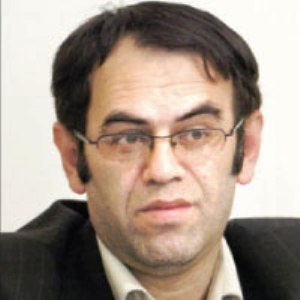Ankara, Tehran, Middle East

They installed the rail tracks at the outset of the AK Party’s ascension to power at the beginning of the millennium, and now they are chugging along on it with remarkable speed. Diplomatic, security and trade ties between Tehran and Ankara are blossoming now. The once Islamism-conscious Turkey today seems to have no fear of its pious brother to its East. Discovering more and more similarities with its Muslim neighbors, Tehran has also put Turkey on the top of the list of its diplomatic favorites. On the 17th of May 2010, Tehran signed an agreement with Brazil and Turkey dubbed “The Tehran Declaration” in an effort to allay the West’s anxieties about its enriched uranium stockpile. The deal –encouraged but later rebuffed by the US- bound Tehran to consign its precious uranium stockpile –gleaned bit by bit despite strong pressure from global powers- to Ankara. While signaling the mutual trust between Iran and Ankara, it also marked a diplomatic shift in Tehran: from reliance on Russia and China to partnership with middle powers such as Brazil and Turkey.
Warm ties between Iran and Turkey are a given now. But it was hard to describe mutual ties with a positive adjective a decade ago. Historically, the relations between Turkey and Iran had been filled tension and rivalry. The height of tensions was interestingly during the rule of the Ottoman Empire in Turkey and the Safavid dynasty in Iran, which was of Turkish origin itself. Contentious issues covered a broad range: from the preferred narration of Islam (Sunnism versus Twelver Shi’a) to geopolitics and territorial claims (Baghdad was exchanged between the two powers during the 1623-1639 war).
Once keeping itself aloof from Middle East political arrangements, Turkey embarked upon a regionally active diplomacy with the rise of Islamists to power in 2003. The neo-Ottoman policy, developed and produced by Turkey’s foreign minister Ahmet Davutoglu, further implicates a more active role (evinced by Turkey’s strong mediation in the Middle East peace process, Afghanistan-Pakistan relations, and Lebanon’s political crisis –where the West’s ignorance of the byzantine politics and its attempt to marginalize Hezbollah has created chaos- and the post-Saddam politics of Iraq) and détente with neighbors (Syria and Turkey –once on the verge of military confrontation over their share of the waters of the rivers Tigris and Euphrates- are now on intimate terms and Iran’s name was removed from Turkey’s national security threat assessment document, the Red Book, in 2010). Iran, whose power exponentially increased after US blessings in disguise –the overthrow of Saddam Hussein in Iraq and the Taliban in Afghanistan—views Turkey as a reliable partner which can be its lifeline during a time of increasing international pressure and be its advocate in the international community.
Asadollah At’hari is a Turkish affairs analyst.

